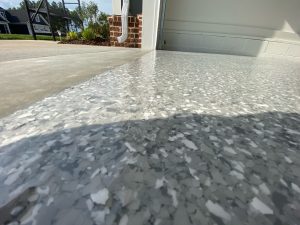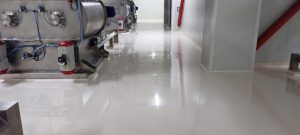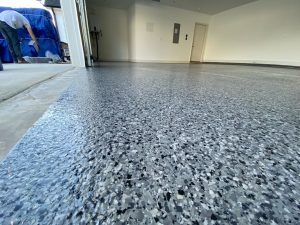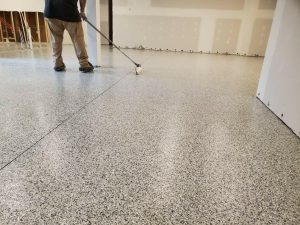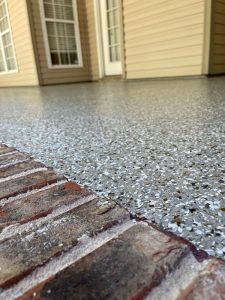Selecting the right floor coating for your home is an important decision that can impact both the look and durability of your space. Whether you’re looking to enhance your garage, patio, or basement, choosing the right coating involves considering factors like material, climate, and long-term maintenance. If you’re a homeowner in Mississippi, this guide will help you make the best choice for your flooring needs.
Why Floor Coatings Matter
Floor coatings not only protect your floors from daily wear and tear but also improve their appearance, increase durability, and add value to your home. For areas like garages or basements that experience heavy traffic or moisture exposure, a good floor coating can be the difference between frequent repairs and long-lasting performance.
Types of Floor Coatings
There are several types of floor coatings available, each with its pros and cons. Let’s look at the most common options:
1. Epoxy Coatings
Epoxy is one of the most popular choices for garages, basements, and commercial spaces. It’s known for its toughness and ability to resist chemicals, stains, and wear.
- Pros:
- Extremely durable
- Resistant to chemicals and oil spills
- Available in a variety of colors and finishes
- Provides a high-gloss, professional finish
- Cons:
- Longer curing time (takes days to fully set)
- Sensitive to moisture during application
- Can yellow over time if exposed to sunlight
Epoxy is a great option if you’re looking for long-term durability and have time to wait for proper curing.
2. Polyurea Coatings
Polyurea is gaining popularity for its rapid curing time and flexibility. This type of coating is ideal for areas that experience frequent temperature changes, like garages.
- Pros:
- Quick curing (can be used within hours)
- Highly resistant to cracks and peeling
- UV stable, meaning it won’t yellow in sunlight
- Flexible, making it perfect for climates with temperature fluctuations
- Cons:
- More expensive than epoxy
- Requires professional installation for best results
Polyurea coatings are ideal if you want a quick, durable solution, especially in climates that experience wide temperature swings.
3. Acrylic Coatings
Acrylic coatings are often used for decorative concrete surfaces, such as patios and walkways. They provide protection from UV rays and add a decorative finish to outdoor spaces.
- Pros:
- UV-resistant
- Easy to apply
- Provides a decorative, aesthetic finish
- Affordable
- Cons:
- Not as durable as epoxy or polyurea
- Requires frequent reapplication
- Limited to light traffic areas
Acrylic is best for outdoor areas where aesthetics and UV resistance are more important than heavy-duty protection.
4. Concrete Sealers
Concrete sealers penetrate the surface of the concrete, providing basic protection against moisture, dirt, and stains. They are commonly used in basements, driveways, and patios.
- Pros:
- Easy to apply
- Provides moisture resistance
- Affordable option
- Ideal for light-duty areas
- Cons:
- Limited durability
- Requires reapplication every few years
- Does not offer the same level of protection as epoxy or polyurea
Concrete sealers are ideal for areas that require basic protection without the need for heavy-duty coatings.
Factors to Consider When Choosing a Floor Coating
1. Location and Use
The function and location of the area you’re coating will significantly impact your decision. For instance:
- Garages: Epoxy or polyurea coatings are your best bet for durability and resistance to chemicals and heavy traffic.
- Patios and Outdoor Spaces: Consider acrylic coatings or concrete sealers for UV resistance and aesthetic appeal.
- Basements: Epoxy or sealers work well here, offering moisture protection.
2. Climate
Living in Mississippi means dealing with humidity and temperature fluctuations. Polyurea coatings are more flexible, making them ideal for environments that experience extreme temperature changes. Epoxy also performs well but requires careful application in humid conditions.
3. Budget
Your budget is another essential factor to consider. DIY epoxy kits are available at a lower cost, but professionally installed polyurea coatings may offer better long-term value due to their durability and fast curing times. Acrylic coatings are affordable but may need more frequent maintenance.
4. Aesthetics
If appearance is a top priority, both epoxy and polyurea offer a wide range of finishes, including high-gloss, matte, and custom designs. Acrylic coatings are often chosen for their decorative appeal on patios and walkways.
5. Maintenance Requirements
Consider how much maintenance you’re willing to commit to. Polyurea and epoxy coatings require minimal upkeep, while acrylic and concrete sealers may need reapplication every few years.
DIY vs. Professional Installation
While some homeowners opt for DIY epoxy kits, professional installation is often the better choice for more complex coatings like polyurea. Professionals can ensure proper surface preparation and application, which is key to long-lasting results. If you’re looking for a long-lasting, flawless finish, hiring experts like ICM Coating Masters ensures the job is done right.
Conclusion
Choosing the right floor coating for your home depends on several factors, including the location, climate, budget, and level of durability you need. Whether you go for the strength of epoxy, the flexibility of polyurea, or the affordability of acrylic, ensuring the right coating will protect your floors for years to come.
Not sure which floor coating is best for your home? Contact ICM Coating Masters today for a free consultation. Our team of experts can help you choose the right solution to protect and enhance your floors, whether it’s for your garage, patio, or basement.

